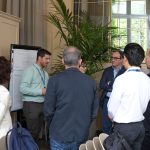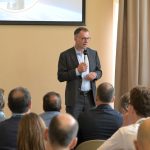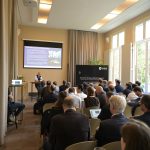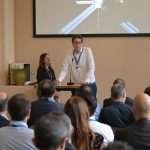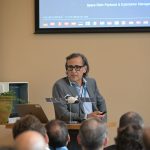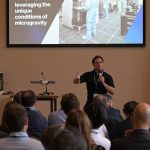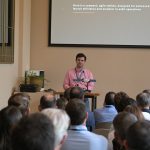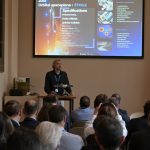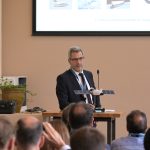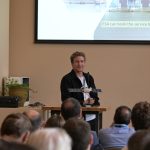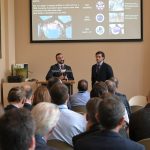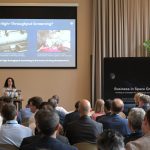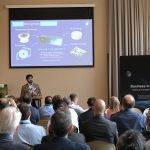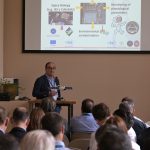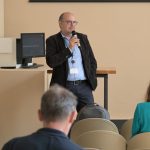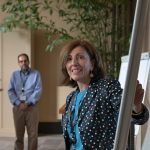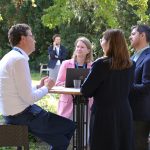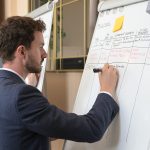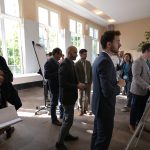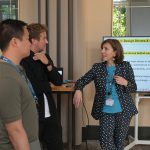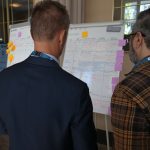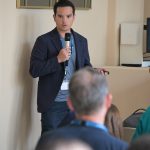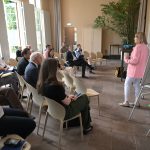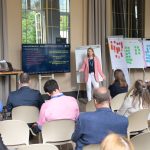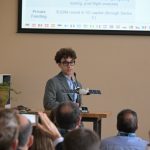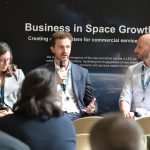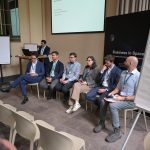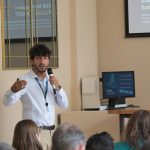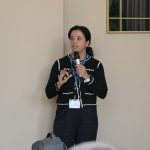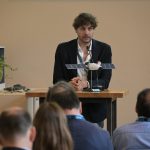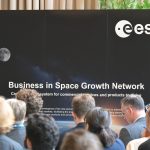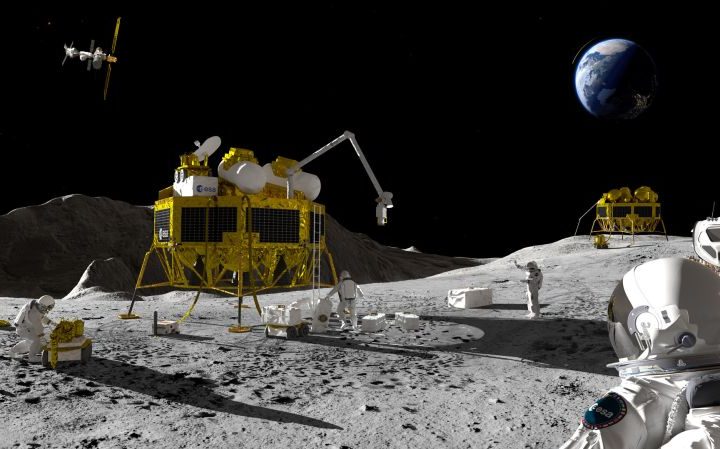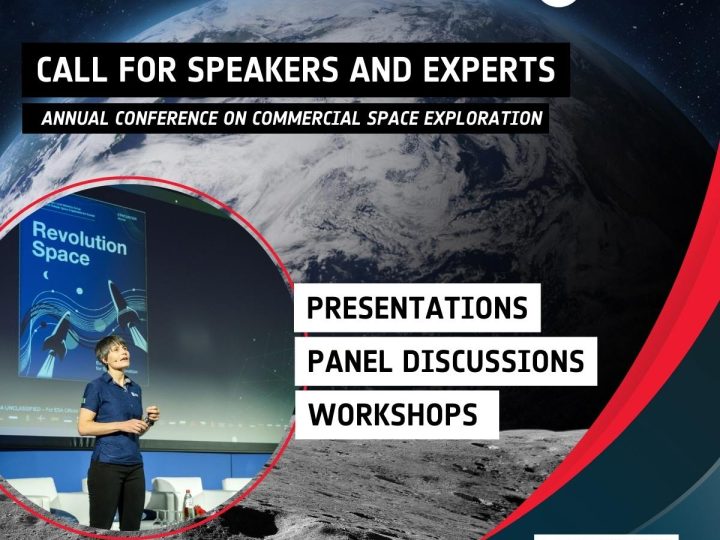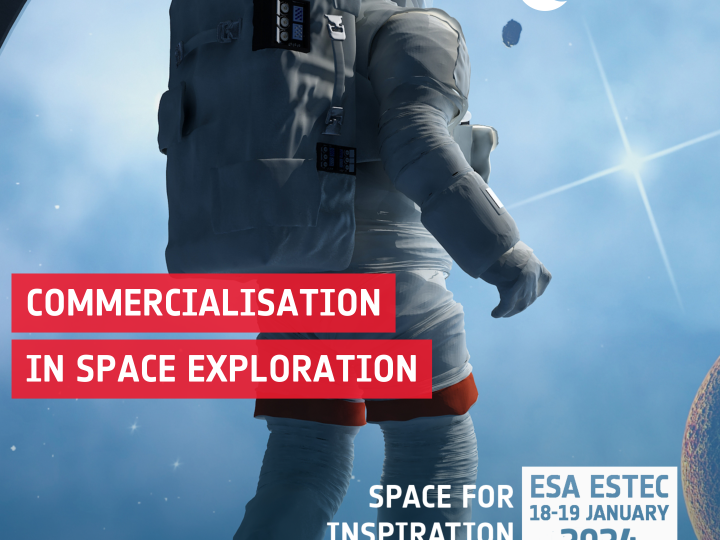HRE Industry Workshop - Automated LEO Platforms for R&D and Manufacturing
Share this page
About this event
On September 8th 2025, ESA hosted an industry workshop on automated LEO platforms (ALP) for R&D and manufacturing in space. The workshop was held in Hortus Botanicus, Leiden (Netherlands). The workshop brought together ESA teams, LEO commercial service providers, payload hardware developers, terrestrial industry users, investors and consulting services, to examine how a new class of automated, rapidly recoverable, free-flying platforms can accelerate microgravity research and foster commercial activity.
Automated platforms promise higher cadence, tailored environments and lower operational overhead for specific use cases in market segments such as life sciences, advanced materials, in-space manufacturing, and agri-food.
Purpose and Scope
The workshop was focused on the role of automated LEO platforms (ALP) in Europe’s emerging space ecosystem. The sessions held during the workshop were impact-driven, assessing how ALP can contribute to scientific, technological and commercial objectives. Its objective was to bring together ESA teams, industry, investors and end users in a structured dialogue.
From a technical perspective, the workshop aimed to identify both commercial opportunities and challenges, while also examining the end-to-end processes required for such platforms, from experiment design and payload integration, through launch and operations, to data and sample return.
From a strategic perspective, the workshop aimed to clarify the importance of automated platforms within ESA’s long-term roadmap, including the post-ISS era and future exploration goals, while also addressing interoperability requirements and standardization needs to ensure smoother integration of payloads and services across different providers.
Audience Overview
- Platform Service Providers: Firms that design, build and operate automated LEO platforms/free-flyers (and related return capsules or ISS-hosted platforms). They provide the vehicle and mission services: payload hosting, power/thermal/data, safety qualification, integration, launch/operations/re-entry, and sample/data return.
- Payload Service Providers: Firms that develop experiment facilities and payloads (e.g., bioreactors, crystallization modules and broader laboratories) and often deliver experiment-as-a-service: study design, qualification, biosafety, integration with platforms, on-orbit ops support, and post-flight analysis—bridging end users to flight.
- Institutional: Space agencies and public entities, representing different ESA directorates, national agencies, and European Commission, that set strategy, fund and de-risk capabilities, steward standards/safety, enable access to orbit and procure or co-fund services to advance science, policy and European competitiveness.
- Investor/Consulting Services: Venture capital investors and advisory/consulting firms that provide capital, due diligence, market and technical assessments, strategy, and risk advisory. They evaluate business models, regulatory pathways, and scale-up economics to inform funding and partnerships.
- BSGN Industry Accelerators: ESA’s Business in Space Growth Network Industry Accelerators’ Managing Partners that scout for high-commercial potential projects, broker demand, mentor companies, provide support and matchmake between end users, payload developers, and platforms – aiming to convert terrestrial R&D needs into flight campaigns. The BSGN Accelerators involved were MEDES (Life Science) and the Satellite Application Catapult (Advanced Materials and In-Space Manufacturing).
- End Users: Companies from terrestrial markets involved or attracted to make use of microgravity to advance their commercial R&D activities and outcomes (pharma/biotech, advanced materials, semiconductors, chemicals, research institutions). They define use cases and requirements, seek validated data/samples/processes, purchasing services from payload and platform providers.
Sessions Summaries
First Session – ESA Programmatic Alignment
This session mapped the intersections between automated platforms and ESA priorities, spanning science utilization, Post-ISS strategy. The session was led by ESA with contributions from different ESA Directorates and programmes: General Support Technology Programme (GSTP), ESA Marketplace for commercial growing and scaling, In-Space Assembly and Manufacturing (ISAM), In-Space Proof of Concept (InSPoC), and Business Applications and Space Solutions (BASS).
The focus was on which areas and how ESA can de-risk critical capabilities, facilitate standards definition, and catalyse early demand through co-funding and acting as anchor customer.
The session hosted several ESA experts discussing synergies and complementarities with a range of ESA initiatives, highlighting how automated LEO platforms can mutually benefit from them and for them, being functional in achieving different strategic objectives.
The hosted speakers were Bernhard Hufenbach (Commercialisation & Inn. Team Lead at ESA), Eric Istasse (Post-ISS strategy at ESA), Angelique Van Ombergen (Chief Exploration Scientist at ESA), Kenza Benamar (GSTP Program at ESA), Kais Barmawi (ESA Marketplace), Calum Turner (In-Space Servicing, Assembly and Manufacturing at ESA), Thomas Nussmann (FLPP and In-SPoC at ESA). The session was followed by a Q&A session.
Second Session – Interoperability
The session was directed by Antonella Sgambati, LEO Payload Team Leader at ESA, and brought together an audience of platform developers, facilities developers and potential users. The format was intentionally participatory, fostering dialogue and mutual exchanges. A key insight emerged: standardization lowers friction and broadens access across vehicles; over-standardization can constrain innovation and performance. The session sought pragmatic common denominators (minimum viable standards) while leaving room for mission-specific differentiation.
The final goal was to converge on shared understanding of current strengths and challenges, identify practical pathways to overcome current European bottlenecks and pave the way towards more harmonized standards and procedures for payload-platform interoperability.
The session was split into sections, each with a main thematic driver:
- Station 1: Understand the main drivers shaping interface design (mechanical, data, power, thermal, etc.).
- Station 2: Explore where technical alignment could unlock efficiency and access.
- Station 3: Examine process-level barriers to interoperability (plug-and-play)
Third Session – Private Sector Utilization Interest
Framed around market pull, this session combined a panel with thematic working groups on Pharma and Advanced Materials. Each group worked through use cases, customer requirements, and the role of free-flyers, while discussing the market value and future perspectives.
The session started with a panel discussion participated by Francesco Liucci (Business Development Engineer, responsible for the BSGN initiative, ESA), Robin Sie-Verbruggen (COO at Resonance Holdings), Andrei Sapera (Space Business Developer at Space Application Services, ICE Cubes Division), Mira Baraket (VP of Technology at Atlant 3D), Daniel Kogan (R&D Scientist at SpacePharma), Hamid Soorghali (Lead Strategy Consultant at the Satellite Applications Catapult), Joel Friedman (moderator, Head of Innovation Services at the Satellite Applications Catapult).
After the panel discussion, the audience broke down into working groups, focusing on Life Sciences and Advanced Materials, stimulating open discussions among participants.
Forth Session – End-to-End Concept of Operations (Con.Ops.)
Building from real operational constraints, this session traced the full-service chain: interfaces to the International Space Station (ISS) where relevant, ESA’s facilitator role, payload integration and handling, and enabling service elements such as science selection coordination, payload development, platform integration, ground segment personnel training, and more.
The session was moderated by Julia Weis (LEO & Suborbital Utilisation Team Leader at ESA) and Marco Vukich (ISS Payload Integration Manager at ESA). The discussion built on the legacy of ISS end-to-end operational flows and assessed how similar or adapted frameworks could apply to automated LEO platforms. The audience included platform developers, payload providers, and ESA staff, with the goal of clarifying expectations, identifying gaps, and exploring ESA’s potential roles as customer, partner, or enabler in the future commercial ecosystem.
The session progressed from reviewing the ISS operational baseline to outlining what an end-to-end service model could look like for automated platforms. Discussions also integrated concrete examples, notably biology use cases, to illustrate specific logistical and technical requirements.
When and where
-
September 8, 2025 9:00 am
September 8, 2025 5:00 pm -
Hortus Botanicus, Leiden, Netherlands
